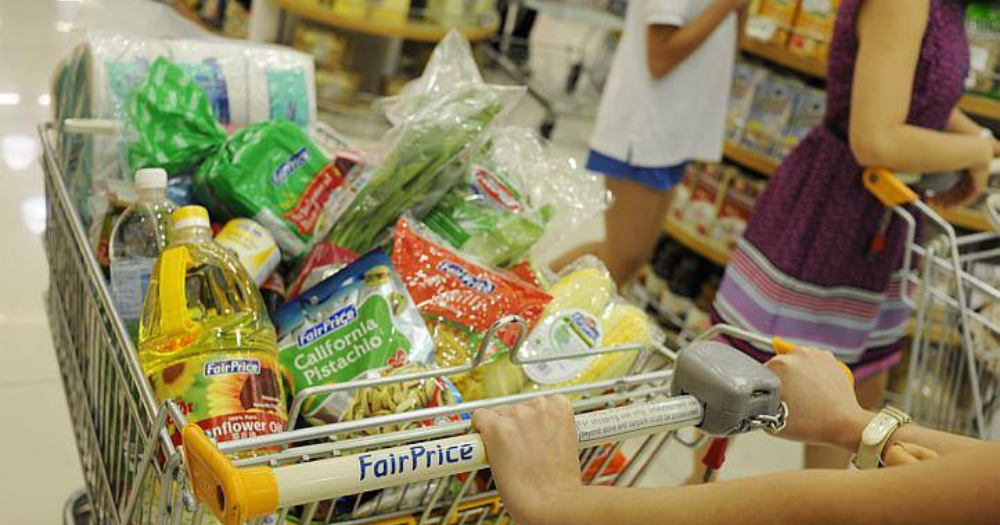It seems unlikely that Singapore will impose a ban on single-use plastics any time soon.
Assessing how such policies would fit in a local context
Member of Parliament for Nee Soon GRC Lee Bee Wah raised the question of single-use plastics in parliament.
Lee asked:
- whether the Ministry of Environment and Water Resources (MEWR) would study the impact of the policy on banning single-use plastics in the UK and Ireland and,
- what is MEWR's assessment of the likelihood of adopting a similar ban in Singapore
Senior Minister of State for the Environment and Water Resources Amy Khor's written reply was that Singapore will not go down the road of banning single-use plastics, at least not anytime soon.
Khor wrote that MEWR and the National Environment Agency (NEA) "take a keen interest in how other countries manage their disposables".
The government would continue to study such policies and the outcomes of their implementation in order to assess if they would fit the local context.
Focus on more than just plastics
Khor stated that plastics were not the only target of the ministry.
NEA reportedly conducted a life cycle assessment of single-use plastic carrier bags and other disposables.
They discovered that replacing single-use plastics with other types of purportedly eco-friendly, yet single-use bags, such as paper bags or degradable bags, were "not necessarily better for the environment".
Khor added that the current approach would be to "reduce the excessive use of all types of disposables, not just single-use plastics", and to promote the use of reusables as well.
Single-use plastics have been banned in other countries
Lee's question was originally referring to the ban imposed in both the UK and Ireland.
In late March 2019, the European Union voted to ban single-use plastics by 2021.
The ban originally included a long list of plastics such as plastic straws, stirrers, cotton buds, cutlery and plates.
The UK government has since amended the ban to include only plastic straws, stirrers and cotton buds, which will now be implemented in 2020.
The ban is not a complete ban of the single-use plastics, but measures have been introduced to restrict their availability, reported BBC.
Food and beverage shops, along with supermarkets, will be banned from selling plastic straws.
But as straws are necessary for some disabled groups, they are still available for sale at registered pharmacies, or online.
Plastic drink stirrers, however, 316 million of which are used annually, will be completely banned from sale.
Meanwhile, single-use plastic straws, cutlery, plates, cigarette filters, among other items, will be slowly phased and completely banned by 2021, according to the Irish Mirror
Businesses have to report on the plastic packaging they use in future
While Singapore might be pretty slow on the uptake when it comes to legislation, it seems the government at least is doing something to crack down on plastic generated by businesses.
From the start of 2020 onwards, businesses such as manufacturers, importers and supermarkets with an annual turnover of more than S$10 million will be required to report to NEA information on the packaging they use.
This information will include their plans to reuse, reduce or recycle said packaging annually.
This will hopefully increase companies' awareness of the waste they produce and spur them to take steps to waste less, Khor wrote.
Such regulations would help lay the foundation for the Extended Producer Responsibility (EPR) framework to be implemented by 2025.
The framework ensures businesses take responsibility for the end-of-life treatment of their waste including plastic packaging.
Potential new solutions
Khor also revealed, rather vaguely, some new plans on managing waste in the future.
NEA is currently studying recycling solutions and technologies, and assessing if they were suitable for adoption in Singapore.
These technologies comprise mechanical recycling and chemical recycling, solutions which are able to convert plastic waste into plastic pellets to manufacture new products, or chemical feedstock or fuel, respectively.
Top photo from NTUC Fairprice/ FB
If you like what you read, follow us on Facebook, Instagram, Twitter and Telegram to get the latest updates.
